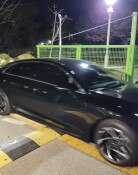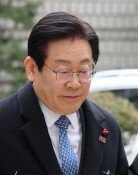Gov’t opposes lowering inheritance tax
Gov’t opposes lowering inheritance tax
Posted November. 15, 2021 08:16,
Updated November. 15, 2021 08:16
The South Korean government in effect shows objection to the idea to reduce inheritance tax by putting in place inheritance acquisition tax. As both the ruling and opposition parties call for reform of a lessened inheritance tax to win over the hearts of voters with the presidential election coming up, there will be inevitable conflict between the administration and the political community.
A study published by the Korea Institute of Public Finance was submitted on Sunday by the Ministry of Economy and Finance to the National Assembly on how to improve the inheritance and gift tax system with a review of major issues included in the report. The administration opposes the idea of a reduced inheritance tax rates from the current level of 10 to 50 percent by adding that the issue requires further deliberation. As many policies are already in practice to ensure tax deductions for family business and farming, for example, it is a better option to make better use of such deduction-based initiatives rather than introducing inheritance tax rates, it says. “Inheritance tax and income tax have a complementary relationship. Reform to the current taxation system requires consideration as it has significance for redistribution of wealth.
Not only with that, the administration effectively expresses objection to the shift from estate tax to inheritance acquisition tax in the inheritance tax system, adding that this issue needs reviewing over the mid- and long-term period. Whereas estate tax is collected based on a total sum of inheritance, inheritance acquisition tax is estimated on a basis of each individual that inherits, which can reduce tax burden overall. After looking at the shift to inheritance acquisition tax, the ministry argues that taxation may have a smaller role to play in addressing the issue of inherited wealth with risks of tax avoidance only increasing.
The administration seems to take a negative position toward greater tax deduction benefits for family business owners who bequeath their ownership to their descendants. The tax deduction limit of family business inheritance is set currently at 50 billion won, regarding which the business circles demand a limit increase. However, the government opines that there is no need to increase the upper limit as last year’s average deductibles recorded 3.97 billion won, lower than the existing legal limit. Meanwhile, it is supportive of increasing the period of yearly installment payment from five years to a decade when a tax amount to be paid is over 20 million won.
With the ministry effectively in opposition to reform to the inheritance tax system, it is expected that conflict of opinions will arise between the government and the political circles in a series of sessions led by the National Assembly’s subcommittee on taxation starting from Monday.
kalssam35@donga.com







